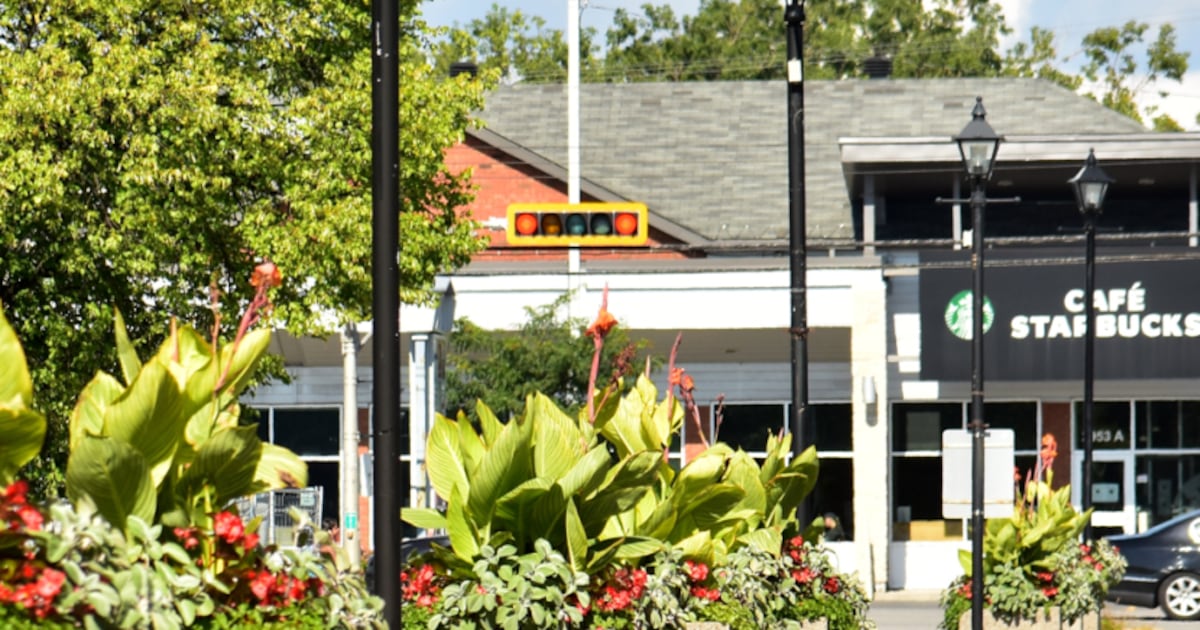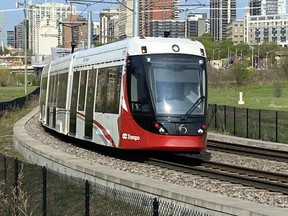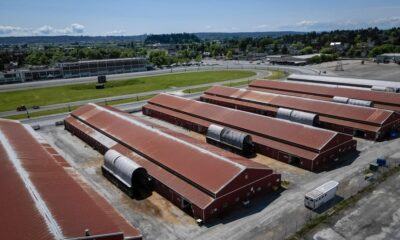Technology
Kirkland Implements AI Traffic System to Ease Congestion on Saint-Charles

The City of Kirkland, located on Montreal’s West Island, announced the successful implementation of an AI-driven traffic management system aimed at reducing congestion on Saint-Charles Boulevard. This installation follows a growing trend in Canadian cities adopting advanced technologies to improve urban mobility.
Kirkland’s initiative involves the NoTraffic AI mobility platform, which has been installed at every intersection along the busy thoroughfare. The city revealed that Saint-Charles Boulevard operates at a staggering 40 percent over its intended capacity, accommodating approximately 42,000 vehicles daily.
The city’s press release noted, “In considering solutions to this growing congestion problem, the city turned to solutions that could improve traffic flow, as eliminating traffic was not an option.” This strategic decision places Kirkland alongside Quebec City, which recently became the first Canadian city to collaborate with Google on its Green Light project, utilizing AI technology to synchronize traffic signals.
AI Technology Enhances Traffic Management
The NoTraffic platform employs a combination of AI-driven cameras and radar systems to monitor traffic conditions at intersections. According to the city, the technology integrates data from these sensors to produce real-time insights into various road users, including pedestrians, trucks, buses, cars, bicycles, motorcycles, and emergency vehicles. The system can detect vehicles located at the stop line as well as those approaching from a distance of up to 220 metres (approximately 720 feet).
This innovative approach is not unique to Kirkland. The NoTraffic system has also been successfully implemented in cities like Arlington, Texas, Tampa Bay, Florida, and Kelowna, B.C. The technology’s growing presence highlights a broader movement towards smart city solutions aimed at enhancing traffic management and improving urban quality of life.
Kirkland officials expressed optimism about the system’s impact. Since its installation in early 2023, the city has observed “significant improvements in traffic flow.” The data collected through the AI system will continue to inform traffic management strategies, ensuring a more efficient and responsive approach to urban mobility challenges.
By leveraging cutting-edge technology, Kirkland aims to mitigate congestion and enhance the daily commuting experience for its residents. As cities worldwide grapple with similar issues, Kirkland’s proactive measures may serve as a model for others seeking effective traffic solutions.
-

 Lifestyle6 days ago
Lifestyle6 days agoChampions Crowned in Local Golf and Baseball Tournaments
-

 Science2 weeks ago
Science2 weeks agoMicrosoft Confirms U.S. Law Overrules Canadian Data Sovereignty
-

 Technology1 week ago
Technology1 week agoDragon Ball: Sparking! Zero Launching on Switch and Switch 2 This November
-

 Education6 days ago
Education6 days agoRed River College Launches New Programs to Address Industry Needs
-

 Technology2 weeks ago
Technology2 weeks agoGoogle Pixel 10 Pro Fold Specs Unveiled Ahead of Launch
-

 Technology2 weeks ago
Technology2 weeks agoWorld of Warcraft Players Buzz Over 19-Quest Bee Challenge
-

 Science1 week ago
Science1 week agoChina’s Wukong Spacesuit Sets New Standard for AI in Space
-

 Science2 weeks ago
Science2 weeks agoXi Labs Innovates with New AI Operating System Set for 2025 Launch
-

 Health1 week ago
Health1 week agoRideau LRT Station Closed Following Fatal Cardiac Incident
-

 Technology2 weeks ago
Technology2 weeks agoNew IDR01 Smart Ring Offers Advanced Sports Tracking for $169
-

 Technology2 weeks ago
Technology2 weeks agoHumanoid Robots Compete in Hilarious Debut Games in Beijing
-

 Health1 week ago
Health1 week agoB.C. Review Urges Changes in Rare-Disease Drug Funding System
-

 Lifestyle1 week ago
Lifestyle1 week agoVancouver’s Mini Mini Market Showcases Young Creatives
-

 Technology2 weeks ago
Technology2 weeks agoFuture Entertainment Launches DDoD with Gameplay Trailer Showcase
-

 Technology2 weeks ago
Technology2 weeks agoGlobal Launch of Ragnarok M: Classic Set for September 3, 2025
-

 Science2 weeks ago
Science2 weeks agoNew Precision Approach to Treating Depression Tailors Care to Patients
-

 Technology2 weeks ago
Technology2 weeks agoInnovative 140W GaN Travel Adapter Combines Power and Convenience
-

 Business2 weeks ago
Business2 weeks agoNew Estimates Reveal ChatGPT-5 Energy Use Could Soar
-

 Science2 weeks ago
Science2 weeks agoInfrastructure Overhaul Drives AI Integration at JPMorgan Chase
-

 Top Stories2 weeks ago
Top Stories2 weeks agoSurrey Ends Horse Racing at Fraser Downs for Major Redevelopment
-

 Health2 weeks ago
Health2 weeks agoGiant Boba and Unique Treats Take Center Stage at Ottawa’s Newest Bubble Tea Shop
-

 Business1 week ago
Business1 week agoCanadian Stock Index Rises Slightly Amid Mixed U.S. Markets
-

 Education1 week ago
Education1 week agoParents Demand a Voice in Winnipeg’s Curriculum Changes
-

 Technology2 weeks ago
Technology2 weeks agoDiscover the Relaxing Charm of Tiny Bookshop: A Cozy Gaming Escape









